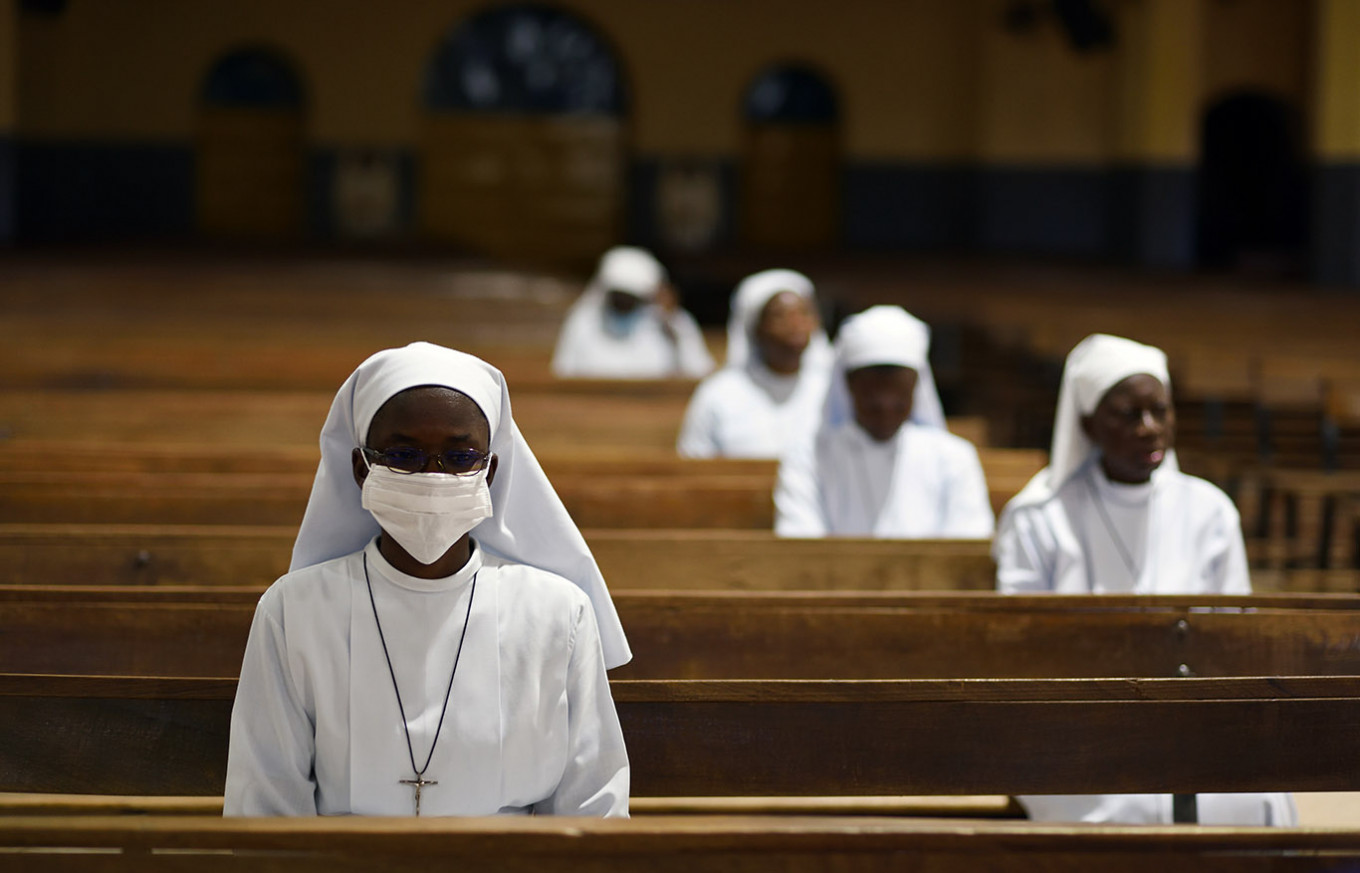Popular Reads
Top Results
Can't find what you're looking for?
View all search resultsPopular Reads
Top Results
Can't find what you're looking for?
View all search resultsA historic Easter
With the Holy Week, including Good Friday and incoming Easter, celebrated in seclusion, the grandiosity of rituals to remember the divine salvation of humankind this year is sorely missed.
Change text size
Gift Premium Articles
to Anyone
A
s Christians prepare for one of their most celebrated holidays, Easter, which falls this Sunday, they may also have their hopes and patience tested. This year, with the COVID-19 outbreak ravaging the country, they will be restricted to their homes instead of celebrating the occasion at church and with their extended families.
Many have never before experienced Lent — marked by fasting or some form of abstinence to replicate Jesus Christ’s sacrifice and withdrawal into the desert before he began his prophetic trajectory — without weekly gatherings for Bible readings and reflection and Sunday Mass in church.
With the Holy Week, including Good Friday and incoming Easter, celebrated in seclusion, the grandiosity of rituals to remember the divine salvation of humankind this year is sorely missed.
But the fact is that the virus has been relentless in its spread across the world, infecting people at an alarming rate— regardless of their beliefs. Social or physical distancing as a mandatory measure to contain the spread of COVID-19 has forced religious communities to change the way they worship.
In some countries, including Indonesia, Christians follow Mass service through live streams on YouTube and most recently, TV or live radio broadcasts.
The good news is that most religious groups in the country have shown compliance with the social distancing strategy, which is a worthy contribution to the efforts to beat the virus. The largest Muslim organizations,
Nahdlatul Ulama (NU) and Muhammadiyah, for example, have asked their followers to avoid Friday prayers and religious gatherings until the health crisis is over.
With the pandemic unlikely to cease during Ramadan, which will start in less than two weeks, NU has called for tarawih (night prayers during the fasting month) at home, instead of in mosques. There has also been discourse on banning Idul Fitri prayers in May if the state of health emergency protracts.
It seems this ongoing crisis is demanding a sacrifice from every individual of all faiths. The Easter festival this time around will not live up to its name.
Next month, it may be the turn for Muslims to miss the festivity of Idul Fitri, which in Indonesia is traditionally marked by family gatherings, particularly after Muslim leaders have discouraged mudik (homecoming exodus).
Easter is essentially a happy-ending story of sacrifice. Christians celebrate Easter as a testament of victory over death, which in today’s world can take shape in poverty, injustice and even human-made disasters. Easter, or Pascha in Greek, is by all means a statement of hope.
In his Urbi et Urbi address on March 27, Pope Francis said people across the world in this time of the pandemic, “like the disciples in the Gospel, were caught off guard by an unexpected, turbulent storm”.
Like Francis said, there is always hope and the strength to go through the current ordeal if we help and comfort each other. We wish everyone who celebrate the occasion a happy and healthy Easter — in the safety of your own homes.










